When Imade was seven years old her teacher began to sexually abuse her after school.
“He [told] me I was a smart and beautiful girl and gave me little sums of money,” says Imade, now 24. One day, he raped her.
Imade told her mother, who complained to the school. “They fired him, but that was all,” she says.
The teacher wasn’t prosecuted despite being referred to the police. But in Nigeria, this is by no means rare.
The country has an extremely low conviction rate for rape and sexual abuse, despite an increase in violence against women in recent years.
Evans Ufeli, a human rights lawyer who has been handling sexual assault cases for over a decade, says “cases are not effective enough … because some [instances of] rape are not recognised in the eyes of law. Sometimes, after medical examination [when] we find no signs of force or bruising, the law does not recognise that as rape.”
But the shortcomings in Nigeria’s legal system – where the burden to prove rape or abuse often lies in evidence of it also being a violent attack – are not the only challenges facing survivors. Nigeria, home to an estimated 170 million people, has just a handful of facilities dedicated to the care and support of survivors.
The first in the country, the Mirabel Centre in Lagos, was set up in 2013. Since then, a former Miss Nigeria winner established the Eight Foundation Centre, which also offers crisis support for women.
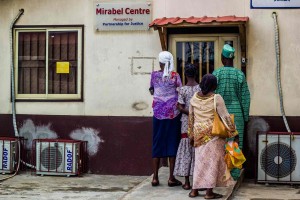
Open door
For the trailblazing staff at the Mirabel, helping women who have been unable to seek justice through the legal system is a daily routine.
Set up in 2013 by Itoro Eze-Anaba, a lawyer instrumental in lobbying the Nigerian government to pass a bill outlawing domestic violence, the Mirabel has treated and supported more than 1,100 survivors of rape and sexual assault.
But in three years, only four perpetrators have been convicted.
“Our door is open to anyone going through sexual abuse or violence,” says Joy Onoriose, a counsellor at the centre. “We have not turned away anyone no matter their story because there is no excuse or justification for rape.”
The Mirabel is a modest two-room building located within the Lagos State University Teaching Hospital in the heart of the city. Since opening its doors counsellors say they have helped a diverse age range of victims ranging from young children to a 70-year-old woman, but add that more than 70% of the victims they treat are under 18.
“We are, more than anything, a client-centred organisation whose primary concern is to help the victims understand and deal better with what they are going through,” says Onoriose. “Depending on what they need, we point them in the right direction.”
The centre covers the cost of medical tests for sexually transmitted infections and pregnancy, as well as drugs and contraceptives. As part of its regular activities, it also organises sexual assault sensitisation programmes across secondary schools in the state to create awareness about the dangers of rape.
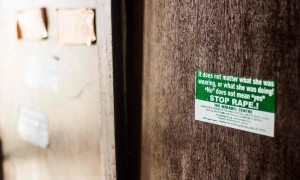
Distrust
“Those who have no access to the Mirabel Centre go to the hospital or suffer in silence,” she says.
Eze-Anaba said survivors must be encouraged to speak out about their experiences. “It’s high time people started speaking about rape. Parents must allow their children to discuss matters that are sexually explicit in nature,” she said.
But distrust of the authorities is a growing problem. In early 2014 three officials from the Kick Against Indiscipline (KAI) paramilitary unit were accused of raping a 24-year-old woman after she refused to pay a bribe. The same year, a local police chief in Lagos was accused of raping a female suspect in an ongoing criminal investigation.
As a result, victims are reluctant to seek help. “These women are scared so they don’t go to look for help and end up in the wrong hands, especially because they are afraid of police nonchalance,” Ayodeji Owosobi, a Lagos-based lawyer and sexual rights advocate, says.
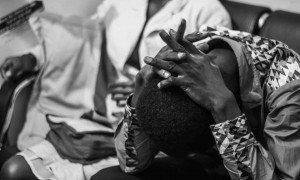
In 2015, Lotanna Odunze’s story showed the divisive effect this distrust can have. Odunze alleged in a blog post that she had been gang-raped by the son of an influential Nigerian politician, and the article quickly went viral.
But while there she received widespread support from the Nigerian public, many social media users pointed to the fact that she did not report the incident to the police as proof of her “ulterior motives”.
“At the time, I didn’t know a rape crisis centre like the Mirabel even existed in Nigeria, or that there were any resources to help someone in my situation, or even what to do after I had been raped to help me get justice”, she wrote in subsequent post.
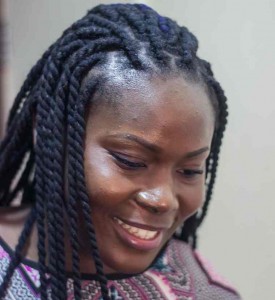
Political shifts
Slowly, as women like Onoriose and Eze-Anaba continue to campaign for greater awareness, the government has started to sit up and respond.
In 2014, Babatunde Fashola, then governor of Lagos state, signed an executive order making it compulsory for witnesses to report sexual violence, at the same time establishing a sex offenders’ register.
A year later, then president Goodluck Jonathan signed the Violence Against Persons Prohibition bill, making rape punishable by life in prison.
In January, a group of lawyers made the case to the federal government in the capital, Abuja, for funding to set up more rape crisis centres across the country as the number of reported rapes continues to rise.
Eze-Anaba has also been calling for a special government unit to be set up, made up of police, social welfare officers, medical practitioners and lawyers, to better cater to the specific needs of survivors of rape.
But these political moves have done little to bolster the Mirabel Centre, still one of the only places victims can go to find support.
When its international funding came to an end late last year, the centre was forced to look to the public to stay afloat. Its crowd funding GoFundMe page has so far attracted over $12,000 in donations since it was set up in September, but supporters say more needs to be done to keep this vital service open.
“We can’t thank them enough,” says Imade – who recently pointed a friend in the direction of the centre. “They are doing God’s work and their reward is in heaven.”
Some names have been changed.

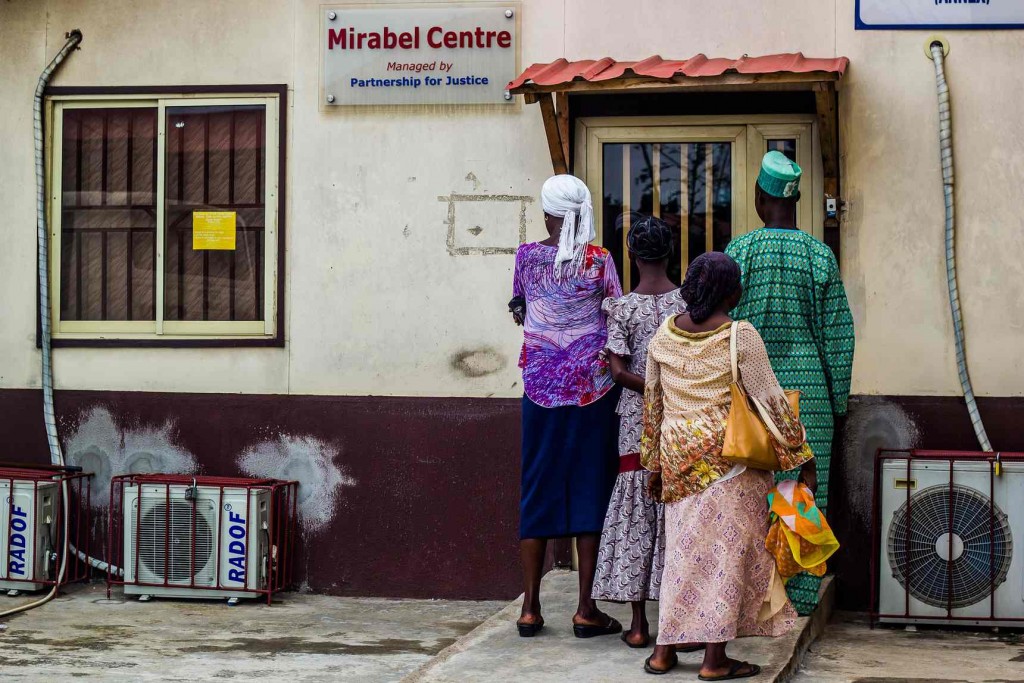
4 Responses
Just four perpetrators convicted in three years, that is just so disheartening. Thank you for this great work because some ladies really find it hard to speak about the awful experiences they have and the only way they can come up to speak is when offenders are truly convicted by the government. I have seen achievements already most especially with the bill that was passed, and i pray better achievements would be made just to stop the insane act “rape.” May God bless Mirabel and everyone in support of the initiative.
God bless everyone who is interested in making the life of the Girl-child better. To ladies, please don’t hide it, speak up. Get contacts of great NGO’s like this who will truly fight for you.
If only some men can take control of themselves and stop behaving like cannibals… It’s good to know that there are platforms like this to help curb this menace. Let me say this Even if the criminal is a very close relation, Don’t hide Him. Speak up and let him be punished no matter the family relationship .
This is a positive start but a great deal more needs to be done urgently. The government needs to commit to investing in quality training for counsellors to work with this client group. The psychological impact and trauma experienced from sexual abuse is unlike other forms of abuse, particularly when the abuse takes place at a very tender age. It requires specialised counsellors who understand the effects. Having parallel programmes dealing with different aspects of this malaise in our society that has been denied and ignored for so long is certainly a welcome occurrence